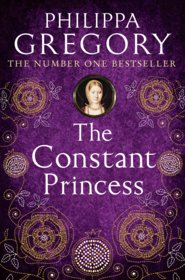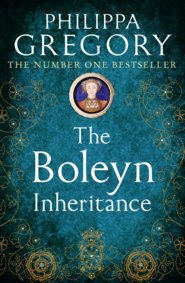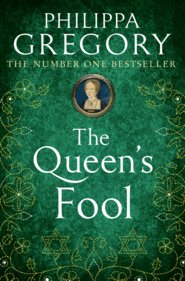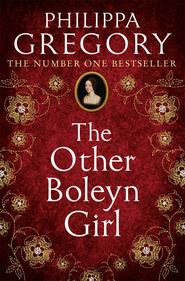По всем вопросам обращайтесь на: info@litportal.ru
(©) 2003-2025.
✖
Earthly Joys
Настройки чтения
Размер шрифта
Высота строк
Поля
‘You brought the new king to his throne, and to his country,’ John observed. ‘You’ve served him well. And he came to his country without trouble. You’ve kept the country at peace.’
The earl nodded. ‘I don’t forget it. But that little chestnut tree of yours, John, that little tree in the pot, may bring more joy to more Englishmen than any of my schemes, in the long run.’
‘Most men’s tastes are not political,’ John said apologetically. ‘I prefer the tree, myself.’
The earl laughed. ‘I have something to show you. I think you may be surprised.’
He turned and John followed him back towards the house. The wide double door stood open, two serving men at either side. The earl walked past them as if they were invisible, John nodded pleasantly to them.
The earl led John into the shady hall. The wood floor and panelling smelled sweet and new, there was sawdust still in the corners, and the linenfold shapes on the panelling were sharp-cut and bright. The wood had not even had its first polish yet, it was still light and shining. Even in the twilight it gleamed as if it were bathed in sunshine.
At the foot of the stairs there was a great newel post, left swathed in a cloth by the woodcarver when he went home for the night. The earl took hold of the sheet and pulled it to one side.
‘What d’you see?’
John stepped forwards to look. The post was square and grand, a fitting size and solidity for the big hall, the ornaments carved on top with acanthus leaves and swags and ribbons. One face of the square pillar was ornate with half-finished carvings but the other was already complete. It showed a man, in the act of stepping down from the plinth, stepping out of the frame of the carving as if he would take his place in the outside world, as if he would take his work to the farthest corners of the world.
In one hand the figure had a long-handled rake, and in the other a grand fanciful flower springing from a huge pot, which was spilling over with fruit and seeds: a cornucopia of goodness. He was wearing comfortable baggy breeches and a stout overcoat, and on his head, at a rakish joyful angle, was his hat. With an awe-struck gasp John recognised himself, carved in wood on the earl’s newel post.
‘Good God! Is it me?’ John asked in a whisper.
Robert Cecil’s hand was gentle on his shoulder. ‘It’s you,’ he said. ‘And a very good likeness, I think.’
‘Why have you put me on your stair post, my lord?’ John asked. ‘Of all the things that you could have had carved?’
The earl smiled. ‘Of all my great choices: the Three Graces, or Zeus, or Apollo, or something from the Bible or the king himself? Yet I chose to have my gardener carved in the centre post of my house.’
John looked at the jaunty confidence of the set of the hat and the brandished rake. ‘I don’t know what to say,’ he said simply. ‘It’s too much for me. You have taken my breath away.’
‘Fame comes in many guises, Tradescant,’ Robert Cecil remarked. ‘But I think people will remember you when they sit beneath their chestnut trees and when your plants bloom in their gardens. And here you are, and here you will be, as long as my house stands, recorded forever, striding out with a plant in one hand, and your rake in the other.’
Autumn 1611 (#ulink_305a925c-44a1-5f7e-9232-75733bd3bd5a)
Elizabeth and Baby J were at last to move to Hatfield House. Gertrude, suddenly seized with maternal tenderness, came to weep over their departure and to see them off, all their goods loaded into one wagon, and Elizabeth sitting beside John on the driver’s seat with Baby J wedged between them.
‘Where’s the chestnut tree?’ John asked.
‘That tree!’ Gertrude exclaimed, but she lacked her old spite.
‘Safe in the back,’ Elizabeth said. ‘Beside the kitchen things.’
John handed her the reins of the steady horse and went round to the back of the wagon to find the barrel with the tree. It was leaning at an angle against the rail. The movement could have rubbed the bark off the tender trunk. John compressed his lips over hard words. Elizabeth had much work to do: moving house, and a young child, active as a puppy under her feet all day. He should not blame her for being careless with something which had only meant much to her as a token of his love. She never cared for it as he did. It was unfair to expect that she should.
He unloaded a couple of stools and repacked the corner of the wagon so that the tree was fully supported. Then he came round to the driver’s seat.
‘Your baby safely settled?’ Elizabeth asked sharply.
John nodded, not rising to the bait. ‘It’s a precious rarity,’ he reminded her mildly. ‘Probably worth more than the whole cart of things put together. We would be fools if we broke it out of carelessness.’
Gertrude shot a swift look at Elizabeth as if to bewail the stubbornness of men, then Elizabeth leaned out from the wagon and kissed her mother goodbye.
‘Come and see us at Hatfield,’ Elizabeth said.
Gertrude stepped back as the wagon moved forward. She waved and saw Baby J wave back to her.- For a moment she thought she might be able to cry, but though she screwed up her face and thought of the loss of her daughter and her grandson, no tears came.
‘Safe journey!’ she called, and saw Tradescant settle himself on the wagoner’s hard bench seat as if he were ready to travel across half the world.
‘Oh, yes,’ she said under her breath as the wagon drew away. ‘I see you, John Tradescant, with your heart leaping up at the very word “journey”. She’d have done better to have married a good Kent farmer and be christened, married, and buried in her father’s church. But that would never have done for you because you are Cecil’s man through and through and you have all of his ambition – though it shows itself in funny ways with your rarities and your travels – and Meopham would never have been big enough or strange enough or rare enough for you.’
A little handkerchief fluttered from the receding cart, and Gertrude whipped out her own and waved back.
‘Still,’ she said philosophically. ‘He doesn’t beat her, and there are a lot worse things a man can love better than his wife than a garden and a lord.’
Elizabeth and John, unaware of this brutal and nearly accurate summary of their lives, found their spirits rising as they drew further and further away from Meopham.
‘It seems odd to me to live anywhere else, but I shall grow accustomed,’ Elizabeth said. ‘And a bigger cottage and a better garden – ‘
‘And the parkland all around instead of the lanes for J to play in,’ John reminded her. ‘And gardens the like of which no-one in England has ever seen. Fountains and rivers!’
‘We must take care he doesn’t wander off and fall in,’ Elizabeth said. ‘He’s very restless. I can’t think how many times someone has brought him back to me and told me he was halfway to Sussex.’
‘He can stray all he likes in my lord’s gardens,’ John said with satisfaction. ‘He’ll come to no harm there.’
‘And we’ll eat our dinner in hall or at our home as we wish?’ Elizabeth asked.
‘As we wish when the lord is away from home. But when he is at the palace he likes his men to dine in the hall. And I like to see him.’
‘Well enough when you had no-one to cook your dinner at home,’ Elizabeth remarked. ‘But now I shall be there-’
John put a hand gently on hers. ‘If he looks down the hall to see me, I must be there,’ he reminded her. ‘It’s not a question of a dinner cooked by you or a dinner cooked by the cooks. It’s not even a question of whose company I would rather keep. It is just that if he looks down the hall for me, I must be there. You must know that by now, Elizabeth. You must know that now that we are going to live on his land, in a cottage owned by him and given to us free. You must know that he comes first.’
For a moment he thought she would fly out at him and then there would be a quarrel and a sulk – for they were both terrible sulkers – which could easily last for the whole two days of the journey. But then he saw her recognise the simple truth of it.
‘I know,’ she agreed. ‘But it is hard for me. The people I come from, my family, are freeholders on their own land. They dine where they please.’
‘Sometimes only on bread and bacon,’ John pointed out. ‘Even so. It’s their own bread and bacon and they fear no-one’s favour.’
John nodded. ‘And if I had been content to be a farmer or perhaps a gardener on my own account in a small way with a little market garden for bulbs or flowers or fruit, then I should be a man like that too. But I wanted something more, Elizabeth. I wanted the chance to make the greatest garden in England. And he gave me that when I was a young man, so young that most masters would have made me work an apprenticeship under another man for another year or three before they even considered me. He trusted me, he took a risk with me. He gave me Theobalds when I was little more than a lad.’
‘And don’t you see what you’ve paid for that?’ she asked him. ‘You can’t even choose where to eat your dinner. You can’t choose where to live. Sometimes I think you can’t even choose what to feel in your heart. It’s his feelings that matter. Not your own.’
‘It’s the way it is,’ he stated. ‘The way of the world.’
She shook her head. ‘Not in Meopham. Not in my family. Not in the country. It’s the way of the court where everyone has to have a great man’s favour and protection to rise, where every great man has to have his followers to show his importance. But there are men and women all over the country who live according to their own lights and call no man master.’
‘You think that’s a better life?’
‘Of course,’ she said, but she could see that what seemed to her to be a freedom from an onerous duty was to him a loss, an emptiness which he could not have borne.












